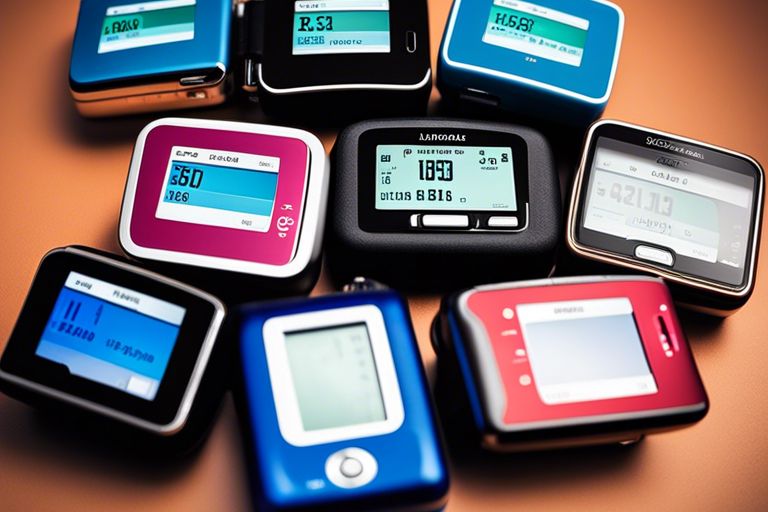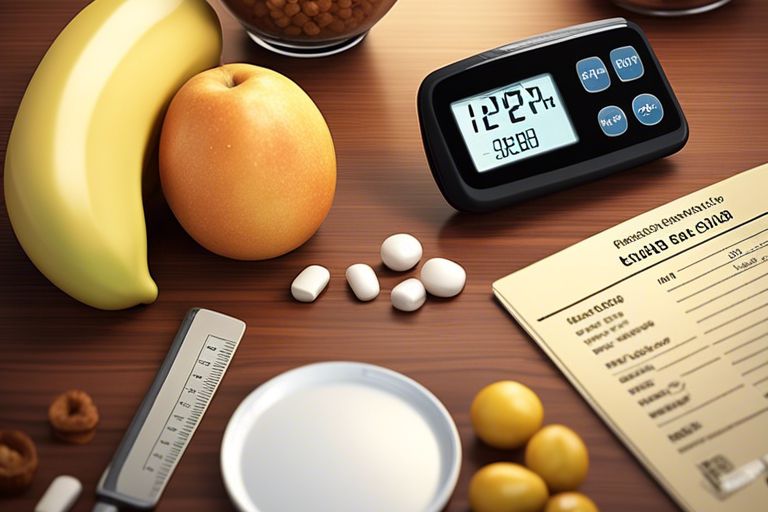Diabetes is a chronic disease that affects millions of people around the world. Type 1 diabetes is a subtype of diabetes that is caused by the body’s inability to produce insulin. This means that people with type 1 diabetes need to take insulin to survive. Living with type 1 diabetes can be challenging, but with the right strategies, it is possible to manage the condition effectively. In this article, we will provide tips and tricks for managing diabetes type 1, including diet and exercise, monitoring blood sugar levels, and dealing with common challenges.
Understanding Diabetes Type 1
Before we dive into the tips and tricks, let’s briefly review what diabetes type 1 is and how it affects the body. Diabetes type 1 is an autoimmune disease in which the immune system attacks and destroys the cells in the pancreas that produce insulin. This leads to a deficiency in insulin, a hormone that regulates blood sugar levels in the body. Without insulin, blood sugar levels can rise to dangerous levels, leading to a variety of health complications.
Tips and Tricks for Managing Diabetes Type 1
1. Develop a Healthy Diet Plan
One of the most important ways to manage diabetes type 1 is to develop a healthy diet plan. This means choosing foods that are low in sugar and carbohydrates, as these can cause blood sugar levels to spike. It is also important to choose foods that are high in fiber, protein, and healthy fats, as these can help regulate blood sugar levels and promote overall health.
2. Incorporate Exercise into Your Routine
Exercise is another important aspect of managing diabetes type 1. Exercise helps the body use insulin more effectively, which can lead to better blood sugar control. It is important to choose activities that you enjoy and that fit into your lifestyle, such as walking, cycling, or swimming.
3. Monitor Your Blood Sugar Levels Regularly
Monitoring your blood sugar levels regularly is a critical aspect of managing diabetes type 1. This involves using a blood glucose meter to check your blood sugar levels throughout the day. It is important to keep track of your readings and make adjustments to your diet, exercise, and insulin as needed.
4. Work with a Healthcare Provider
Working with a healthcare provider is another important aspect of managing diabetes type 1. Your healthcare provider can help you develop a personalized treatment plan that includes medication, insulin therapy, diet, and exercise. They can also provide guidance and support as you navigate the challenges of living with diabetes.
5. Be Prepared for Emergencies
Living with diabetes type 1 can be unpredictable, so it is important to be prepared for emergencies. This means carrying a source of fast-acting carbohydrates, such as glucose tablets or juice, in case of a hypoglycemic episode. It is also important to have a plan in place for managing high blood sugar levels or other complications.
6. Manage Stress
Stress can have a significant impact on blood sugar levels, so managing stress is an important aspect of managing diabetes type 1. This may involve practising relaxation techniques, such as deep breathing or meditation, or engaging in activities that you find calming, such as reading or spending time in nature.
7. Connect with Others
Living with diabetes type 1 can be isolating, so it is important to connect with others who understand what you are going through. This may involve joining a support group, attending diabetes education classes, or connecting with others online.
8. Take Care of Your Feet
Diabetes can affect the nerves and circulation in your feet, making them more susceptible to injury and infection. It is important to take care of your feet by wearing comfortable, supportive shoes, checking
your feet regularly for cuts or sores, and seeing a podiatrist regularly.
9. Keep Up with Regular Health Checkups
Regular health checkups are important for people living with diabetes type 1. These checkups can help identify any complications early on, when they are easier to manage. Your healthcare provider may recommend regular eye exams, kidney function tests, and other tests to monitor your health.
10. Educate Yourself
Education is key to managing diabetes type 1 effectively. Take the time to learn as much as you can about the condition, including how it affects your body, how to manage your blood sugar levels, and how to prevent complications. Attend diabetes education classes, read books and articles, and talk to your healthcare provider for guidance.
11. Don’t Let Diabetes Define You
Living with diabetes type 1 can be challenging, but it is important not to let the condition define you. Focus on your strengths and interests, and don’t let diabetes hold you back from pursuing your goals.
12. Seek Support from Family and Friends
Living with diabetes type 1 can be overwhelming at times, so it is important to seek support from family and friends. Talk to your loved ones about how they can support you in managing your condition, whether it’s by helping you stay on track with your diet and exercise, or simply offering a listening ear when you need it.
13. Stay Positive
Maintaining a positive attitude can make a big difference in managing diabetes type 1. Focus on the things you can control, such as your diet, exercise, and medication, and try not to stress about the things you can’t control. Remember that you are not alone and that there are many resources available to help you manage your condition.
14. Be Patient
Managing diabetes type 1 is a lifelong journey, and it takes time to develop the skills and strategies needed to manage the condition effectively. Be patient with yourself, and don’t be too hard on yourself if you make mistakes along the way. Remember that every small step you take towards better health is a step in the right direction.
15. Celebrate Your Successes
Finally, it is important to celebrate your successes along the way. Whether it’s achieving a healthy blood sugar level, reaching a fitness goal, or simply making progress towards better health, take the time to acknowledge and celebrate your accomplishments.
Conclusion
Living with diabetes type 1 can be challenging, but with the right strategies and support, it is possible to manage the condition effectively. By developing a healthy diet plan, incorporating exercise into your routine, monitoring your blood sugar levels regularly, and working with a healthcare provider, you can take control of your health and live a full, active life.
FAQs
- Can type 1 diabetes be cured? No, there is currently no cure for type 1 diabetes. However, with the right treatment and management strategies, it is possible to live a healthy, active life with the condition.
- What is the difference between type 1 and type 2 diabetes? Type 1 diabetes is an autoimmune disease in which the body’s immune system attacks and destroys the cells in the pancreas that produce insulin. Type 2 diabetes, on the other hand, is a metabolic disorder in which the body becomes resistant to insulin, or does not produce enough insulin to regulate blood sugar levels.
- What are the common complications of diabetes type 1? Common complications of diabetes type 1 include eye problems, nerve damage, kidney disease, and cardiovascular disease.
- Can exercise help manage diabetes type 1? Yes, exercise can help manage diabetes type 1 by improving insulin sensitivity and blood sugar control. However, it is important to talk to your healthcare provider before starting any new exercise program.
- What should I do if my blood sugar levels are too high or too low? If your blood sugar levels are too high, it is important to follow your healthcare provider’s recommendations for adjusting your insulin dose and/or diet. If your blood sugar levels are too low, consume a source of fast-acting carbohydrates, such as glucose tablets or juice, and seek medical attention if necessary.




